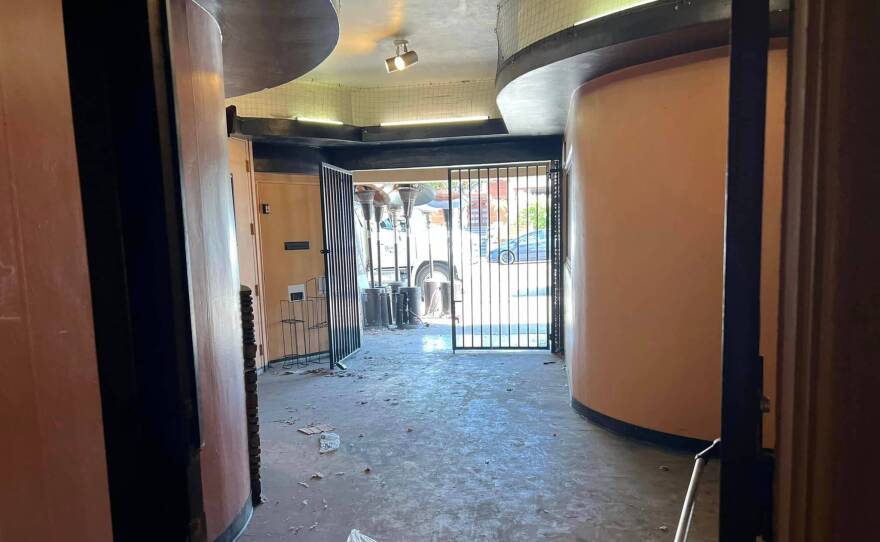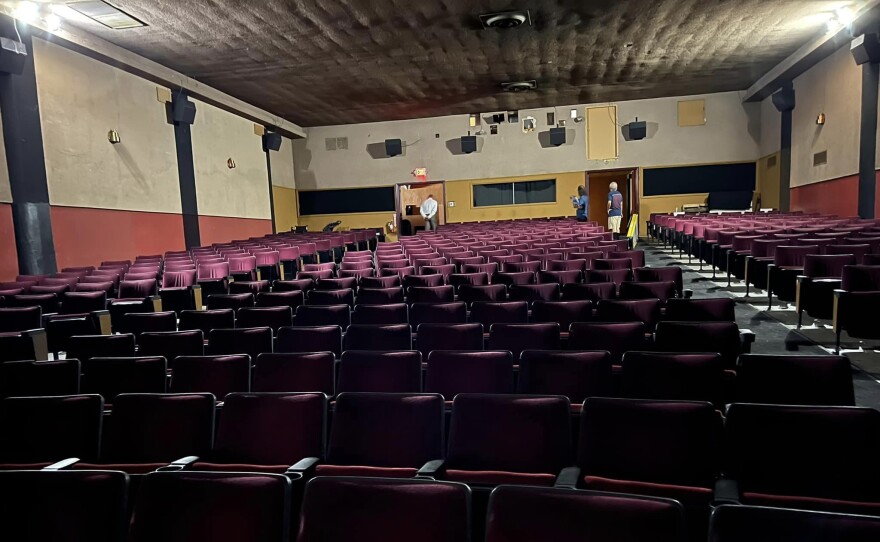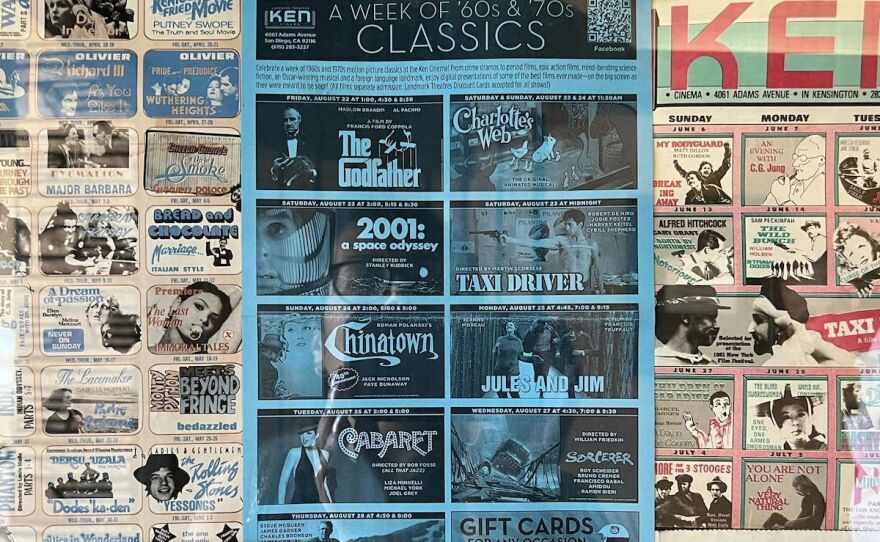Beginning in the 1940s, the Ken Cinema brought foreign and independent films to San Diego. But the single-screen landmark has been vacant for the past two years and has just been sold.
The Ken Cinema’s fate has been in limbo since Landmark Theatres vacated the building in March of 2020 just as the pandemic hit.
Then just before Christmas I received the news I was dreading. The Ken Cinema, which first opened in 1946, had been sold and would no longer be a theatre.
Here’s what Randi Kolender-Hock, a member of the Berkun Family Trust that sold the Ken, said yesterday in Facebook message to me: “This is a decision amongst the family. The new owner is working to maintain the visual appeal to blend in with the integrity and character of the neighborhood. We will ALL miss The Ken and what my grandfather created out of love for film."

Her grandfather was Robert Berkun. He had a business card boasting that the Ken was “San Diego’s only exclusive foreign and art cinema.” He was ahead of his time and gifted San Diego with a place to watch films as a community.
"My grandfather's passion meant so much to us," Kolender-Hock added in her message. "I have told you some of how our youth was at the theatre, with my dad, riding his bike down the aisle of the theater, and spending many hours in the crying room unattended. Memories I cherish."

Anyone who loves film probably has wonderful memories of the Ken Cinema usually about discovering an amazing film, but also about the people you met and the discussions you had.
Ethan Van Thillo is executive director of the Media Arts Center San Diego, which sponsors the San Diego Latino Film Festival and operates Digital Gym Cinema. He is always looking for new venues to use and initially tried to obtain the lease to the Ken Cinema after Landmark left. Back in August of last year he toured the cinema and attempted to buy the building.

"I was surprised because I was like, 'oh my gosh, the seats are still there, the screen is still there. There are even speakers on the wall.' I actually got excited," Van Thillo recalled. "I was like, 'oh, we could turn this around pretty quickly.' A little bit of new paint, new carpet, and we would have had a cinema running really quickly."

But the cost proved to be too high and a single screen movie theatre like the Ken just did not seem viable even with pandemic restrictions lifting.

Van Thillo fondly remembered what the Ken meant to him when he came to San Diego 30 years ago.
"It seemed really unique," he said. "It was that space where you could get their calendar and check out all the independent films and foreign films that you otherwise wouldn't be able to see especially at that time. So losing that opportunity to see great independent cinema in a public space, a community space, where you can watch the movie, and then afterwards you talk about the movie, indeed a sad day for independent cinema here in the region."

Stephen Russell, currently CEO of the San Diego Housing Federation, was Ken Cinema house manager in the 1980s and became city manager for Landmark Theatres in San Diego. I reached him in Barcelona where he was on vacation in part because of a documentary he saw at the Ken Cinema decades ago that changed his life.
"It was 1984 and it was this Japanese film about (Spanish architect) Antoni Gaudí," Russell recalled. "It was one of the most contemplative films, and it just struck me at the time. It was this mystical, magical thing and it made me see architecture in a new way. It changed my life. That's when we talk about what movies can do, they literally can change your life."

He mourns the fact that the Ken will no longer be that place for such cinematic discoveries.
"You could just, on a whim, say, 'let's just go to the Ken, let's see what's playing,'" Russell said. "You wouldn't know what it was, but you could trust the curatorial voice of the people who are programming it, and you could have wonderful surprises."
Back in the 80s, before the internet and social media, the Ken could be a place to bring communities together just by showing a film. As house manager, Russell said he had an extensive rolodex to reach out to different communities for films.
"Maybe it was an Ethiopian film, maybe it was a Jewish community film, maybe it was the peace community, maybe it was French films, and when we would play a film like that, we would reach out to people and for that night, for one night in that place that was their village," Russell said. "And maybe in a way that we don't need it in the same way now because of social media and the Internet. But the power of being in a room with 100, 200, 300 people who were of a mind, a heart, a community... that's lost. That's what's heartbreaking when we lose that."
The loss of such a cinematic treasure during the streaming age is also a sign of changing times.








